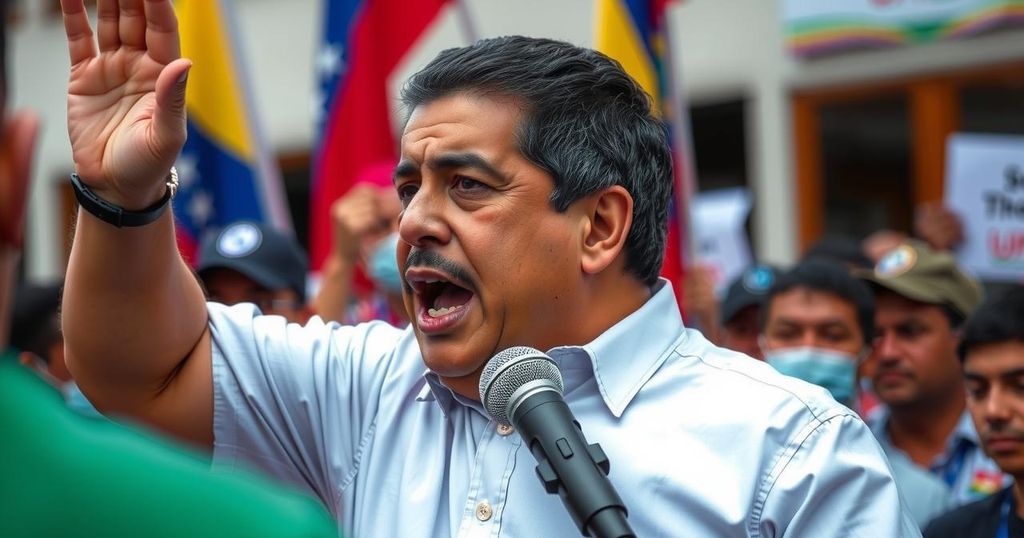Venezuelan President Nicolás Maduro was sworn in for a new term, amidst protests claiming electoral fraud. In a heavily guarded ceremony, Maduro delivered a defiant speech claiming victory over foreign adversaries, reiterating his position as president without foreign endorsement.
On Friday, Venezuelan President Nicolás Maduro was sworn in for a new term, further extending his contentious and repressive governance amidst widespread protests and international condemnation regarding the legitimacy of his election victory. The ceremony, held at Venezuela’s legislative palace, was heavily secured by security personnel, underscoring the measures Maduro has employed to maintain his power following accusations of electoral fraud last year. Supporters of Maduro congregated in the streets nearby, demonstrating their allegiance to the embattled leader despite the surrounding unrest.
In a defiant address, Maduro drew parallels between himself and the biblical figure David, declaring a battle against Goliaths that he characterized as foreign interventionists, particularly referencing the United States and its allies. He articulated that the failure of his adversaries to prevent his inauguration signified a significant triumph for both national peace and sovereignty, confirming his position within the constitutional framework of Venezuela. “Today more than ever I feel the weight of commitment, the power that I represent, the power that the constitution grants me,” Maduro proclaimed while wearing the national flag sash. Furthermore, he asserted, “I have not been made president by the government of the United States, nor by the pro-imperialist governments of Latin America.”
Nicolás Maduro’s presidency has been marked by escalating tensions and crises, both politically and economically, in Venezuela. His initial election was followed by a series of claims of electoral misconduct leading to widespread protests and civil unrest. The international community, particularly Western nations, continues to challenge the legitimacy of his electoral victories, resulting in sanctions and diplomatic isolation. The recent renewed protests reflect the populace’s ongoing dissatisfaction with economic hardships and perceived authoritarianism under Maduro’s regime, further complicating the nation’s political landscape.
The swearing-in of Nicolás Maduro for another term amidst protests highlights the deep political divide in Venezuela, fueled by accusations of electoral fraud and repression. His refusal to acknowledge international condemnation and emphasis on national sovereignty indicate a steadfast approach to governance, despite increasing internal dissent. As the situation evolves, it remains imperative to observe how domestic and international pressures will influence the future of governance and civil liberties in Venezuela.
Original Source: www.scmp.com






